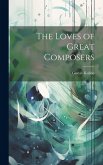At the end of the Second World War, communist sympathies turned Albania from its constitutional traditions into the People's Socialist Republic of Albania. Enver Hoxha, the leader of the Albanian Labor Party, served as head of state from 1944 until his death in 1985. Under Hoxha and his successor as dictator Ramiz Alia, Albania remained firmly in the Communist bloc and those living in Albania suffered immeasurably. Basic freedoms were stripped away, artistic expression was standardized, and the state imposed harsh rules to create systematic dependence on this authoritarian government. Aleksander Peçi: Albanian Music Before and After the Iron Curtain unveils a critical period of Albanian music history. Under the weight of Communism, Albanian artists used their craft to encourage and empower their fellow citizens. Aleksander Peçi, one of the most well - known of all Albanian composers, set a precedent for artistic freedom through his innovative musical compositions. Peçi's personal twist on Albanian iso-polyphony, creative Carousel structure, and provoking Kabaoisos technique created a sense of newfound imagination in Albanian musicians and listeners. Although Aleksander Peçi is well-known among Eastern European musicians and composers, his innovations are not typically familiar to Western music lovers. The People's Socialist Republic was dissolved in 1991, yet communist-era restrictions and influences continue to echo in Albanian music. The importance of creating a form for discussing the topic of Communism is paramount to understanding the culture and style of all contemporary European musicians and composers. This book analyzes the life, musical style, and compositions of one of the most important figures of Albanian contemporary classical music.
Hinweis: Dieser Artikel kann nur an eine deutsche Lieferadresse ausgeliefert werden.
Hinweis: Dieser Artikel kann nur an eine deutsche Lieferadresse ausgeliefert werden.








